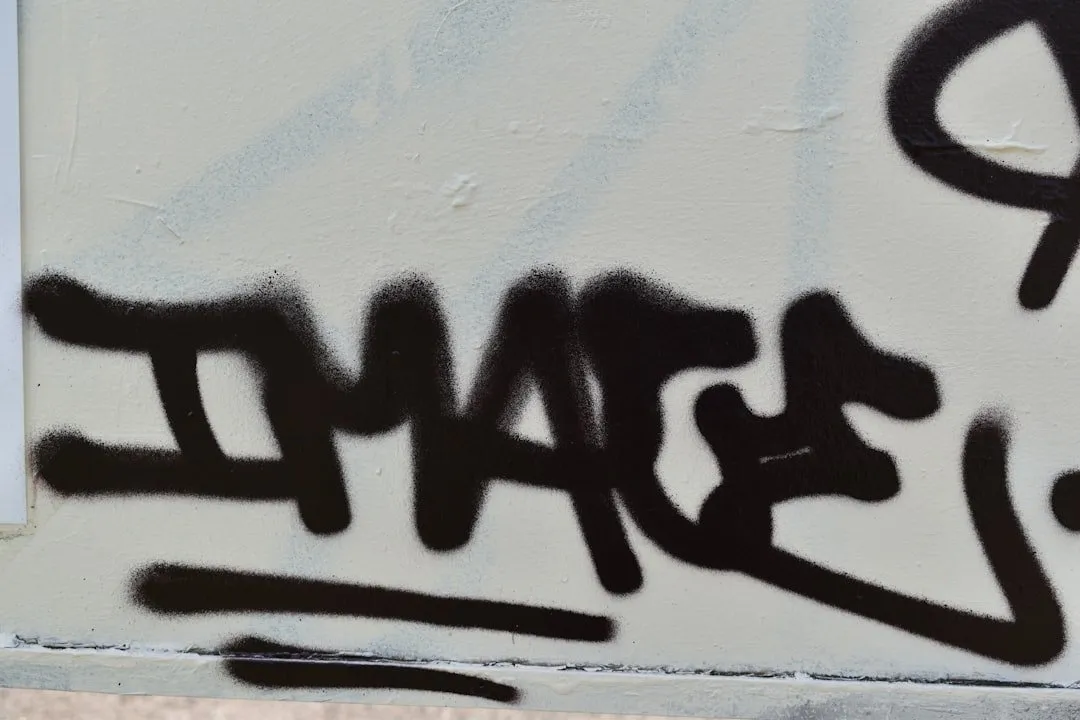Kratom for Withdrawal: Louisiana’s Legal Landscape

Kratom, a natural herb with opioid receptor interactions, is considered for opioid withdrawal aid bu…….
In the intricate web of global substance control, Louisiana’s stance on kratom stands out as a subject of fascination and controversy. Kratom, derived from the tropical tree Mitragyna speciosa, has sparked both hope and debate within the medical and recreational communities. This article aims to dissect the complexities surrounding the legal status of kratom in Louisiana, exploring its historical journey, global implications, economic dimensions, technological innovations, policy frameworks, and societal impact. By delving into these aspects, we will offer a nuanced understanding of why and how this relatively obscure plant has become a focal point in the ongoing conversation about substance regulation.
Definition:
Kratom, often referred to as ‘Kratom Leaf’ or ‘Kratom Powder,’ is a natural product derived from the leaves of the Mitragyna speciosa tree. Native to Southeast Asia, it has been used for centuries in traditional medicine practices. The plant contains several alkaloids, with mitragynine and 7-hydroxymitragynine being the most significant, known for their pharmacological properties.
Legal Context in Louisiana:
Louisiana’s relationship with kratom has evolved over time, marked by periods of ambiguity and regulatory adjustments. As of my cut-off date (January 2023), kratom is not explicitly banned at the state level in Louisiana. However, its legal status becomes complex when considering local ordinances and federal regulations. Here’s a breakdown:
Kratom’s global journey is characterized by a mix of acceptance and controversy, with different regions embracing or restrictive approaches to its use.
International Popularity: Kratom has gained significant popularity worldwide, particularly in North America, Europe, and parts of Asia. Online marketplaces have facilitated its cross-border trade, making it easily accessible to consumers seeking alternative pain management options or recreational experiences.
Regulatory Landscape: The regulatory response to kratom varies globally:
| Region | Regulatory Status | Key Trends |
|---|---|---|
| North America (US & Canada) | Primarily legal, with varying local restrictions | Rapid growth in online sales, increasing medical research interest |
| Europe | Legal in most countries but subject to tightening regulations | Growing demand for kratom-based pharmaceutical products |
| Australia & New Zealand | Some states/regions have banned it; others permit limited use | High levels of public concern drive regulatory changes |
| Southeast Asia | Often legal, with some countries implementing stricter controls | Traditional users advocate for moderation and responsible use |
| UK | Legal but subject to age restrictions and quality standards | Increasing prevalence in the online market, concerns over misuse |
The economic dimensions of kratom are multifaceted, impacting both local markets and global trade.
Market Dynamics:
Investment and Industry Growth:
Technological innovations have played a pivotal role in shaping the kratom industry and its accessibility.
Online Marketplaces: E-commerce platforms dedicated to kratom sales have become virtual hubs for global trade. These sites offer diverse product lines, user reviews, and forums, fostering a community of consumers.
Product Diversification: Modern extraction techniques have led to the development of various kratom products, including concentrates, tinctures, and even kratom-infused beverages. These innovations cater to different consumer preferences and use cases.
Quality Control and Testing: Advancements in analytical methods allow for more accurate testing of kratom products, ensuring quality and purity. This is crucial for consumer safety and building trust in the market.
Mobile Applications: Kratom enthusiasts have created apps offering product guides, dosage calculators, and community forums, further enhancing accessibility and user engagement.
The policy landscape surrounding kratom is dynamic, with varying approaches at local, state, and federal levels.
Federal Non-Classification: The DEA’s decision to keep kratom off the controlled substances list has been a cornerstone of its legal status in the US. This approach allows for ongoing research and access while providing regulators with flexibility to address potential risks.
Local Restrictions: Cities like New Orleans have implemented local ordinances, primarily focusing on restricting the sale of kratom within city limits. These restrictions often cite public health concerns and the potential for misuse.
State-Level Initiatives: Louisiana’s state legislature has not passed comprehensive kratom legislation. However, there have been bills introduced to clarify the legal status of certain kratom products and establish regulations for their sale. These proposals often aim to protect consumers while allowing responsible use.
International Cooperation: As kratom becomes a more global concern, international organizations and regulatory bodies are collaborating to share best practices and harmonize approaches, ensuring consistent standards across borders.
Despite its growing popularity, kratom faces several challenges and criticisms that have shaped public perception and policy decisions.
Safety Concerns: One of the primary criticisms is the lack of comprehensive research on kratom’s long-term effects. Some users report adverse reactions, including dependence and withdrawal symptoms, though these claims are debated within the scientific community. Rigorous studies are needed to address safety concerns and inform evidence-based policies.
Misuse and Addiction: Critics argue that the accessibility of kratom increases the risk of misuse, particularly among individuals already prone to substance abuse. Efforts to mitigate this include education campaigns and local restrictions targeting high-risk populations.
Quality Control: The decentralized nature of kratom’s global supply chain raises concerns about product quality and purity. Stricter testing and regulation are necessary to ensure consumer safety and build trust in the market.
Regulatory Uncertainty: The evolving regulatory environment creates challenges for businesses and consumers alike. Unclear or sudden policy changes can disrupt markets, while a lack of consistent regulations across borders hinders international trade and research collaboration.
Real-world applications of kratom offer valuable insights into its potential benefits and responsible use.
Case Study 1: Thailand’s Traditional Medicine Use: In Thailand, kratom has been an integral part of traditional medicine for centuries. The Thai government has recently embraced this legacy, promoting kratom as a natural alternative to prescription opioids for pain management. This approach has led to reduced opioid dependence and improved patient outcomes, demonstrating the potential therapeutic benefits of kratom when used responsibly.
Case Study 2: US Military Application: The US military has shown interest in kratom as a non-pharmaceutical option for pain management and stress relief among service members. Studies have indicated positive outcomes, leading to its inclusion in some military healthcare programs. This case highlights the potential value of kratom in specialized healthcare settings.
Lessons Learned:
The future of kratom looks promising, with several growth areas and emerging trends shaping its trajectory.
Medical Research: Ongoing research is expected to yield more insights into kratom’s pharmacological properties, leading to potential pharmaceutical applications. This includes the development of targeted treatments for pain, anxiety, and opioid withdrawal.
Regulatory Harmonization: International efforts to harmonize kratom regulations will facilitate cross-border trade and collaboration in research and product development. Standardized quality control measures will enhance consumer safety.
Digital Health Solutions: The integration of kratom into digital health platforms could offer personalized dosing guidance, education, and support communities, making it more accessible to consumers worldwide.
Specialty Products: As the market matures, niche products catering to specific user needs (e.g., organic, high-quality extracts) will gain popularity, appealing to health-conscious consumers.
The journey of kratom in Louisiana, and globally, is a complex narrative woven with threads of tradition, science, policy, and public perception. As this plant continues to capture the attention of users and regulators alike, a balanced approach is essential. Embracing kratom’s potential while addressing its challenges requires ongoing research, responsible use campaigns, and adaptive policies.
The future outlook for kratom is multifaceted, with medical research, regulatory cooperation, and digital innovations shaping its trajectory. Louisiana, with its rich cultural heritage and evolving regulatory framework, plays a unique role in this narrative. By navigating the complexities of kratom’s legal status, the state can contribute to a more informed global conversation, ensuring that this ancient plant’s modern applications are both safe and beneficial.
Q: Is kratom illegal in Louisiana?
A: As of my cut-off date, kratom is not explicitly banned at the state level in Louisiana. However, local ordinances and federal regulations can vary, affecting its sale and distribution.
Q: What are the potential medical benefits of kratom?
A: Kratom has shown promise in managing pain, reducing anxiety, and aiding in opioid withdrawal. Research continues to explore its therapeutic potential, particularly in specialized healthcare settings.
Q: How can I ensure the quality and safety of kratom products?
A: Look for third-party tested products certified for purity and quality. Reputable vendors provide detailed product information, including sourcing and testing results. Online reviews and community forums can also offer insights into reliable brands.
Q: Are there any restrictions on buying kratom online in Louisiana?
A: While online sales are legal in Louisiana, some cities have local ordinances restricting the sale of kratom within their boundaries. Always check local laws before purchasing to ensure compliance with your area’s regulations.
Q: Can kratom be used as a recreational drug?
A: Kratom is traditionally used for its pharmacological properties and has been incorporated into various cultural practices. However, its use for recreation, similar to other substances, carries risks and should be approached with caution. Responsible use campaigns emphasize moderation and awareness of potential side effects.

Kratom, a natural herb with opioid receptor interactions, is considered for opioid withdrawal aid bu…….

Kratom, legal in Louisiana but with varying regional restrictions, offers therapeutic benefits for p…….

In Louisiana, kratom is not entirely banned but regulated under strict laws controlling sale and pos…….

Bali Kratom capsules offer a convenient way to consume kratom, providing pain relief, mood enhanceme…….

Kratom, a natural herb from Mitragyna speciosa, is a stress and anxiety reliever but faces legal com…….

Green Hulu Kratom Extract from tropical Southeast Asia offers a balanced blend of mitragynine and 7-…….

Kratom, though not fully banned in Louisiana, faces complex regional restrictions. Safe usage involv…….

The legal status of kratom for athletic performance varies across the US, with Louisiana banning cer…….

Opioid withdrawal syndrome presents severe physical and emotional challenges. Kratom, though controv…….

Kratom, a natural herb from Southeast Asia, is popular for energy boost and focus enhancement but it…….

Kratom, derived from Mitragyna speciosa, offers stress and anxiety relief but is subject to varying…….

Kratom, an herb with historical use in Southeast Asia, offers a natural alternative for opioid withd…….

Kratom from Mitragyna speciosa offers hope for opioid withdrawal management due to its non-addictive…….

Super Green Malay Kratom Powder is a potent strain legal in Louisiana but with varying local restric…….

Joint pain is a common issue, and while kratom offers natural relief for some, its legal status in L…….

Kratom, derived from a tropical plant, is a potential anti-inflammatory remedy for chronic condition…….

Kratom, a natural herb with energy and focus benefits, is not entirely banned in Louisiana but its l…….

Inflammation, a natural immune response, can lead to various health issues when chronic. Kratom, an…….

Super Green Malay Kratom Powder, a popular strain in Louisiana and globally, offers therapeutic bene…….

Malaysian Kratom buds, known for their high quality and varied effects, offer benefits like enhanced…….

Kratom, though popular among athletes for recovery, has limited scientific backing and varying legal…….

Muscle soreness after exercise stems from various factors. Kratom, a natural pain reliever derived f…….

Chronic pain management in Louisiana requires a holistic approach including medication, therapy, and…….

Kratom, derived from Mitragyna speciosa leaves, is a natural alternative to stimulants used by athle…….

Athletic recovery involves physiological and psychological components, often hindered by training de…….

Kratom, a natural herb with promising mental health benefits, has a complex legal status in Louisian…….

White Sumatra Kratom Powder, a potent strain from Indonesia, is popular globally for its medicinal b…….

Kratom, derived from the Mitragyna speciosa tree, is a natural substance gaining attention as an add…….

Kratom (Mitragyna speciosa), known for its potential anti-inflammatory properties, faces legal compl…….

In Louisiana, kratom, including Green Hulu Kratom Extract, is currently illegal due to health concer…….

Kratom, a natural extract from Southeast Asia, is known for boosting mental focus and concentration…….

Kratom, derived from Mitragyna speciosa, offers athletic performance support through analgesic and s…….

Athletic performance support uses various strategies and supplements, including Kratom, to enhance p…….

Opioid withdrawal symptoms can be intense and lead many to seek alternatives to traditional methods……..

White Vein Kratom Powder, popular for therapeutic uses including pain relief and anxiety management,…….

Kratom, derived from Mitragyna speciosa leaves, offers potential therapeutic benefits like pain reli…….

Kratom, a tropical herb used for its therapeutic properties, enhances athletic performance by boosti…….

Purple Vein Kratom capsules offer a legal, controlled dosing method for mood enhancement and pain re…….

Bali Kratom capsules provide a convenient way to consume Mitragyna speciosa with precise dosing, tho…….

In Louisiana, the status of kratom is ambiguous despite its potential as a natural anti-inflammatory…….

Kratom, despite its potential mental focus benefits, faces complex legalities in Louisiana, with var…….

Kratom, derived from Mitragyna speciosa, is known for its potential to enhance mental focus and clar…….

Sports nutrition optimizes athletic performance by understanding how macronutrients fuel exercise, s…….